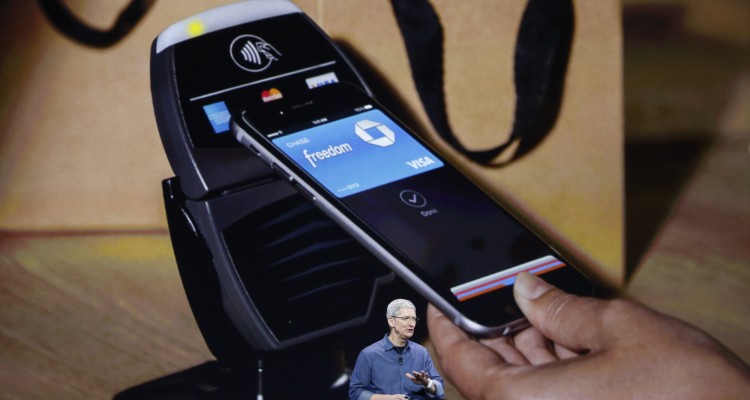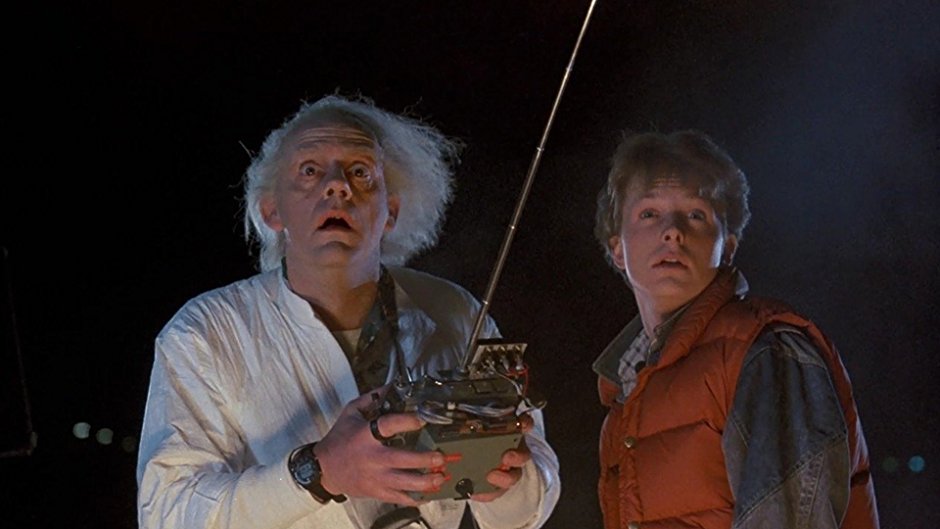SUBTEXT

Grocery stores have accepted credit cards since the 1980s, but paying by phone is presented as “the future.”
[Editor’s Note: New York Times sportswriter Marc Stein insulted the Portland Trail Blazers. Pete Tothero is writing reactionary anti-Times articles as retaliation.]
Times business writer David Gelles has been playing a fun game in 2018: he has used cash to pay for things, but has claimed in print that he has not been using cash to pay for things. The Times felt this was news- or at least extremely-soft-feature-worthy.
In “Going Cashless: My Journey Into the Future,” Gelles details how starting on New Year’s Day of this year, he didn’t use cash to pay for anything. The details are fascinating, because they include gems like this, from the article’s opening: “I’ve relied almost exclusively on credit cards, Apple Pay, online orders and the occasional generosity of an unsuspecting friend. By essentially renouncing physical currency, I’ve slipped a little further into the future.”
So Gelles’s feigned fascination in that painting on the far wall of the restaurant at exactly the moment the check is placed on the table is a future-oriented strategy! I had no idea.
“Futurism, thy face is a Times business writer using his credit card to buy groceries.”
“My unintentional experiment began on Jan. 1 as I awoke with a rumpled tuxedo, a mild hangover and no money in my pocket,” he writes, making sure we know he’s a pretty James Bond-ish kind of guy. (I also love that the word January is too long to spell out in this kind of urgent reportage from the front line of the future.) Gelles then begins to narrate, in laborious detail, how when he went to places to purchase things, he used his credit card.
Yep. Futurism, thy face is a Times business writer using his credit card to buy groceries.
But Gelles isn’t all about himself. Performing due thought-fluencing diligence, he gives us the Davos-approved take:
I vividly remember the first time I heard someone describe a world without cash. It was 2012, and I was at an event in London, listening to Ajay Banga, the chief executive of Mastercard, extol the virtues of digital currencies and the problems with paper money.
That froze me. First, the verb in that last sentence is extol, which means Banga extolled the problems with paper money, which is not the proper use of that verb and a reason the end of the sentence doesn’t parse particularly well. (Yes, the Times laid off copywriters last year.) But also: 2012 was the first time a Times business writer had heard someone describe a world without cash? The grocery store I worked at as a bag boy in 1989 was taking credit cards for payment then. I know this because I distinctly remember an older gentleman seeing the card reader and saying using a credit card to pay for groceries was a horrible idea, and that pretty soon no one would have cash and everyone would be in debt to the credit card companies. I thought, What a codger! Now, of course, I realize the man was right, and possibly my future self wasting a trip back in time to walk into Safeway and complain about credit card use, which is totally something I would do. My point, though, is this: that moment was twenty-nine years ago.
But Gelles heard about a world without cash from Ajay Banga, whojustsohappenstobe the chief executive of Mastercard, in 2012, so, you know—futurism.
I’ll save you further tedium by letting you know that the way Gelles succeeds at avoiding the use of cash is primarily by being annoying and rude. He takes cash from his cousin to pay for his kid’s ride on a carousel, he doesn’t tip a valet or his barber, and his wife pays their babysitter and cleaner. In the coup de grace of his enlightened futurism, he relates this delightful anecdote: “One day, I was late to pick up my toddlers from day care, and the school demanded $50 in cash. Rather than consent, I fought the charge and got away with a warning, but it was a close call.”
Was it? I mean, yes, it was a close call for Gelles’s refusal to use cash. On the question of whether he’s being an asshole, though, I’m kind of getting the feeling the call wasn’t particularly close.
So a Times writer uses his credit card, doesn’t tip, and calls it “futurism”—that’s par for the course. There’s a more deeply troubling dynamic here, though, and it has to do with something the editors of the New York Times business section often seem oblivious to: when you are casting your slice-of-life business articles toward a wide audience, the majority of your readers do not Uber around Manhattan in a rumpled tuxedo, stiffing valets while taking notes for their business section column. Many Americans are perfectly familiar with the strategy of not using cash, and here is why: at some point during the month, they run out of it.
It’s not futurism. It’s not “going cashless.” It’s called “running out of money,” and it is explored not at all in Gelles’s tone-deaf column. There are thousands upon thousands of students, single moms, day laborers, social workers, K-12 teachers, and others who could write in far greater detail, with far greater nuance, about strategies for surviving without cash. It is not futurism for them, it is now.
New York Times, I have better things to do, but Marc Stein started this. “Going Cashless: My Journey into the Future” is elitist bullshit.
Pete Tothero is the magazine’s former sports editor. He has become more and more interested in the myriad ways contemporary American society attempts to make individuals feel weird and alone unless they do what they are told.
